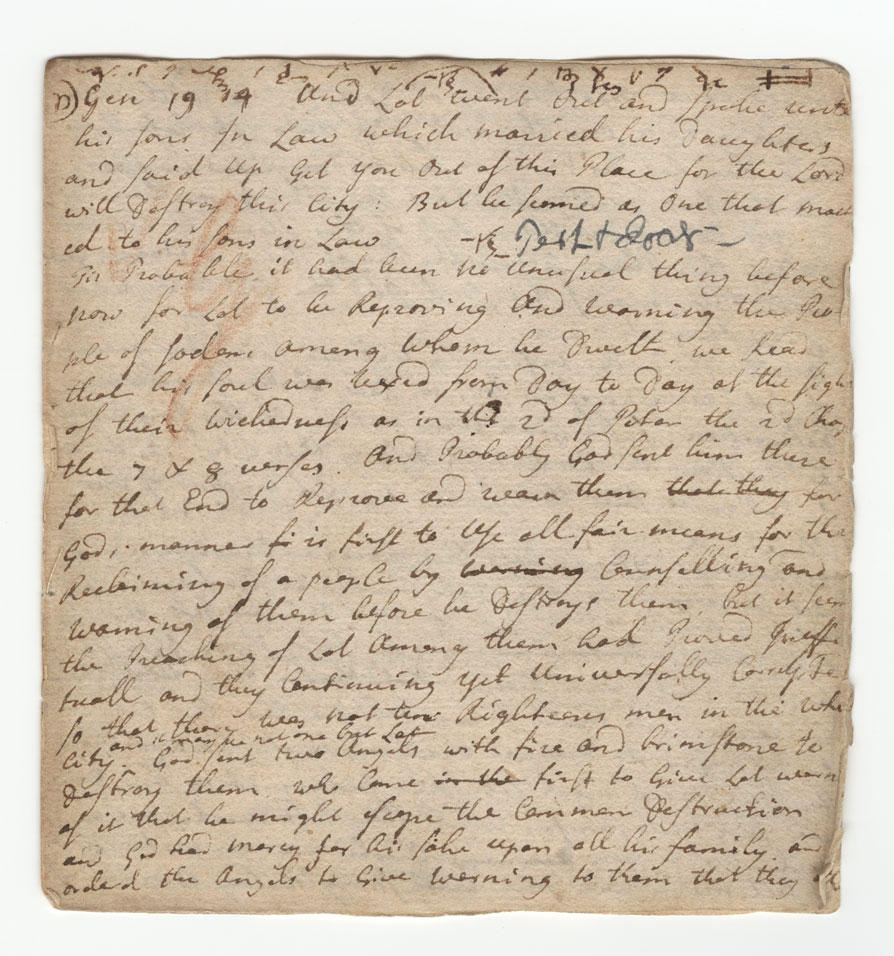Guest post by Jake Belder
One of the things I hear every now and then from newer preachers is that they have an ambition and desire to be able to preach with simple notes, or even without notes. At our college Communion service at St John’s College the other week, the visiting preacher preached without notes, and many people said afterwards how amazed they were by this. And rightly so – she didn’t stumble at all, the words ‘uh’ and ‘um’ were pretty much absent from her vocabulary, and the sermon was clear and structured.

Does this mean that all preachers should aim to preach without notes? When people suggest to me that they should, there are a few things I usually say in response. That is not because I presume to be an expert on preaching, but having done it regularly over the past three years, I have a few thoughts borne out of experience.
In the first place, every preacher has different abilities. The preacher at our Communion service clearly had the sort of memory that could just absorb things as she prepared, which could then be distilled verbally without any written prompts. My brain doesn’t work that way, however. It’s not that the stuff I take in while I prepare to preach doesn’t stay there, but the way my memory works, were I to go into the pulpit without notes, I would have a lot of difficulty calling it all back to mind. Give me a pen and paper and I can probably write it all out again, but to share it all verbally without prompts would be difficult for me. As a result, I use a script when I preach, and I’m unapologetic about that fact. I’ve worked hard during the week to expound the text and to put the sermon together, and when I get into the pulpit I want to make sure that everything that needs to be said gets said clearly.
Secondly, in response to this, some new preachers are concerned that if they use a script it will sound like they are reading an essay. That will only be true if you write it like an essay. One of the things you learn when you preach is to find your own voice. For me, that means that when I write a few sentences or a paragraph for a sermon, I read them back to myself to make sure it sounds like something I would say. It means I don’t always use proper grammar, that I don’t worry too much about colloquialisms, and that I sometimes write in a sort of ‘stream of consciousness’ style. And because I try and write in the way I speak, when I get into the pulpit, I only need to glance at a line I’ve written to remember what’s there. That frees me up from having to focus too much on it to make sure I read it correctly.
Sometimes after I’ve made these points, those who advocate preaching without notes might make one final comment, and that is to suggest that to preach a scripted sermon is to stifle the work of the Holy Spirit. Honestly, I think that is nonsense. When I preach, I can think of at least four distinct ways I depend on the work of the Spirit: first, to sanctify me; second, to write the truths of the passage I’m preaching from on my own heart first; third, to guide me in my study and preparation; and fourth, to take my words and to use them to open up the truth of God’s Word so that his people will be built up in faith. If that’s not depending on the Spirit, I don’t know what is. And yes, that means that sometimes when I’m preaching I will feel prompted to say things other than what I’ve written. But more often than not, it means I stick to what’s on the page in front of me.
If you can preach with bullet points or without notes, that’s great. But I don’t think that is a goal that every preacher needs to aspire to. God uses you as you are, with your unique abilities and gifts. And if your desire is simply to proclaim his Word faithfully so that his people are transformed more and more into the likeness of Christ, and so that others come to know the risen Lord Jesus, then he will do that work by his Spirit whether or not you need to have notes in front of you.
(And yes, that’s a photo of me preaching from a couple of years ago. With notes.)
Originally published here.













